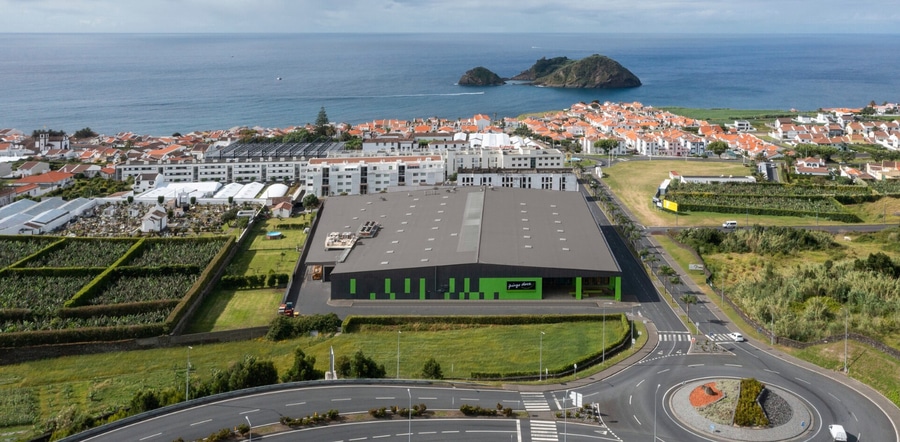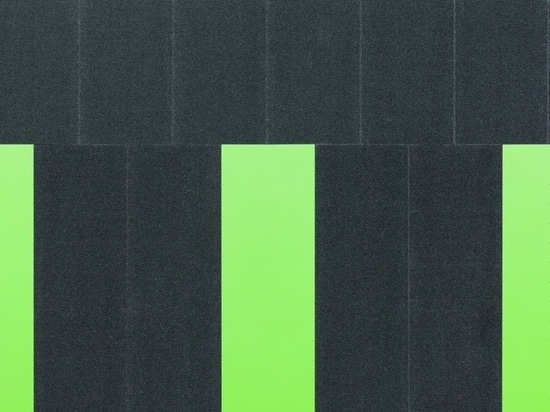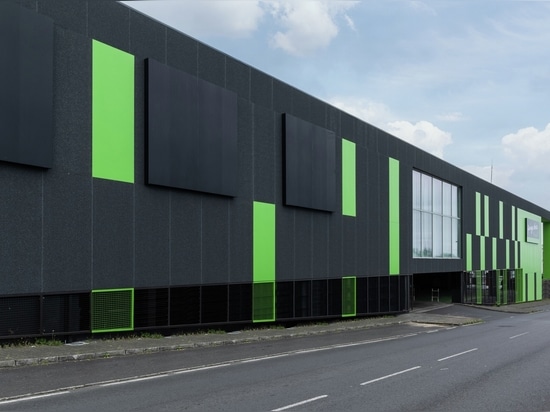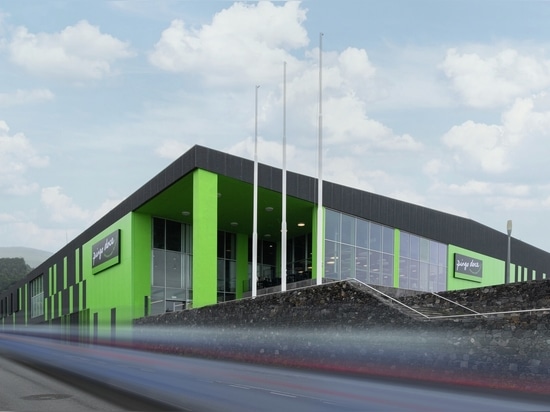
#Product Trends
Steni panels bring new life to a shopping mall in Azores, Portugal
Specialist in facade cladding panels, the brand reinforces its presence in Portugal with a new project in the archipelago of Azores, the rehabilitation of the building that now houses Pingo Doce Shopping Mall in Vila Franca do Campo, in São Miguel.
Steni, a brand specialized in facade panels, reinforced it's portfolio in the Portuguese market equipping a new project in the archipelago of Azores that enveloped the rehabilitation of the old SolMar building, in Vila Franca do Campo (São Miguel island). The space, which now welcomes a Pingo Doce and several stores, was in a state of decay and was subject to a deep intervention as to it's rehabilitation and adaptation, in a project promoted by Finançor and signed by the architect Óscar Catarino, from Box Architects. Pingo doce is a major brand of supermarkets in Portugal and with operation globally with other brands, like Biendronka with 3250 supermarkets in Poland.
Reflects the landscape
Characterized by their ease of installation, low-cost durability, ease of cleaning, impact resistance and, increasingly importantly, their reduced carbon footprint, both Steni Colour and Steni nature were chosen as the solution for this project.
Available in a wide range of colors and finishes, which can be customized, the usage of these panels allows you to literally play with colors and textures of the architecture project, obtaining exterior facades with a unique design, making them the ideal solution for costumers in the area of distribution, whose stores are an extension of their corporate image.
The combinations were almost limitless, and they gave us the creative ability to formalize a facade design according to the studio's creative method.
ARCHITECT ÓSCAR CATARINO, BOX ARCHITECTS
Harsh climate
Easy to install, as they are provided in a cut to size format, Steni panels are mounted on a ventilated facade system, they can be glued or applied via mechanical fixing, which allows them to be installed at any time of the year, regardless of weather conditions (rain, humidity and salty air moisture), which was quite advantageous in an insular climate such as that of the Azores.
"In addition, the fact that the panels were supplied cut to size and already with holes for the placement of the mechanical fasteners, was an advantage well recognized by the promoter, since it not only allowed a reduction in the cost of labor as well as installation time, guaranteeing the maximum perfection of the final result", explains Mário Neves, Account Manager at Steni Portugal, which officially represents the Steni brand at a national level.
Built by Acrobatik Desafio and carried out by a team of applicators certified by Steni and Allface, the installation of Steni's panels in the renovated Pingo Doce in Vila Franca do Campo was carried out at a rate of 150 m2 per day.
"The fact that Steni makes it possible to install at such an accelerated pace becomes especially valued in projects in the commercial and accommodation markets that, as we know, are very demanding in terms of execution time, as each day that the project is under construction, it is revenue that is being lost" says the person in charge.
No two are alike
Extraordinarily resistant to temperature and the most demanding climates, Steni ventilated facade panels are 100% resistant to humidity and can even remain submerged in water. Ease of maintenance is another advantage of Steni panels, which can be cleaned with most cleaning products.
Steni is a global brand of glass fiber reinforced stone composite facade panels, of Norwegian origin and present in several markets. Currently having a portfolio of several public and private projects made and in progress or scheduled for execution in the coming months and which project values that can double the already reached at the start of operation.
"In addition to the formal aspects related to architecture, it seemed to us that the textures presented could place the building in a differentiated position with its own distinct personality. From the technical point of view, we were surprised by the good result in very extensive and deformed facades, as was the case of the previous building and the speed of execution supported by the dimensional characteristics of the panels, in which the binomial weight / dimension is very favorable to the demands of modern construction. Once executed and during the assembly process, the material gave us a great confidence at various levels (structural and formal), conveying an enormous sense of robustness. I also note the extraordinary work of technical follow-up by Mr. Mário Neves, who, according to his professionalism, was crucial for the successful completion of the work. Thus, it is a fact that this material will accompany us in future projects that the studio is and will develop." Says Architect Óscar Catarino from Box Architects.









